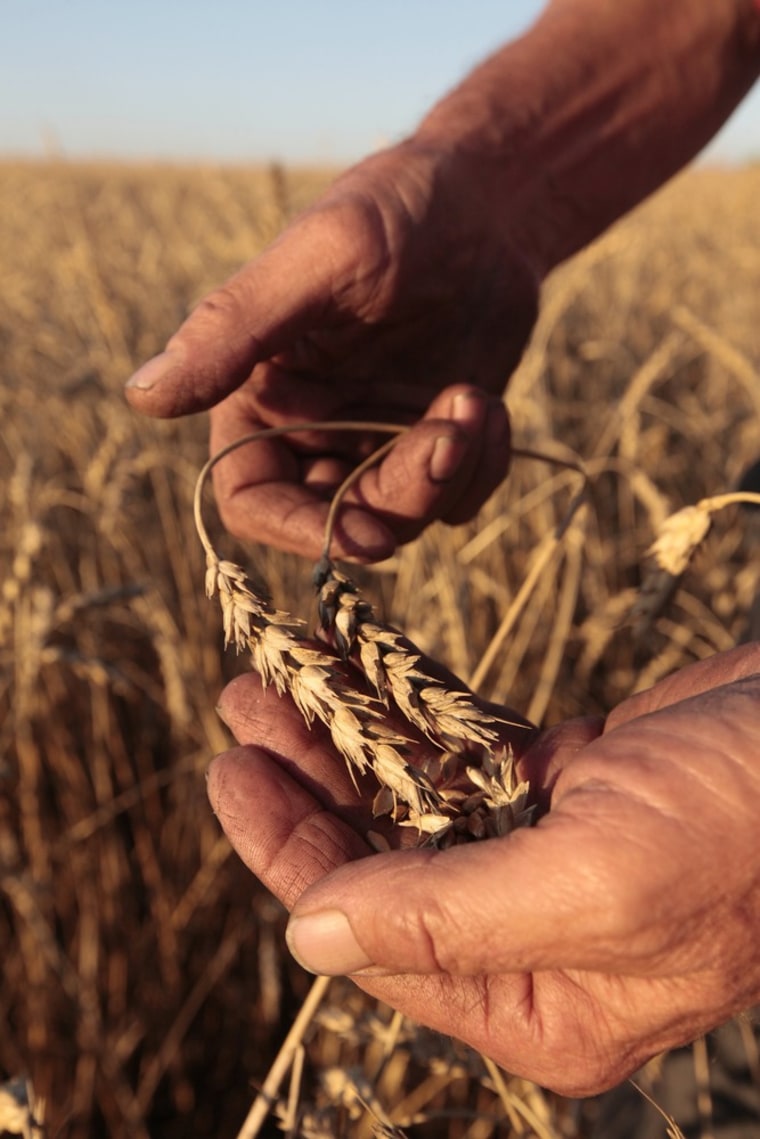Scientists from Britain, Germany and the United States have unlocked key components of the genetic code for wheat, helping to create varieties that are more productive and better able to cope with disease, drought and other crop stresses.
The identification of around 96,000 wheat genes, and insights into the links between them, comes just two years after British researchers published the raw data of the wheat genome.
"Since 1980, the rate of increase in wheat yields has declined," said one of the project leaders, Keith Edwards of the University of Bristol. "Analysis of the wheat genome sequence data provides a new and very powerful foundation for breeding future generations of wheat more quickly and more precisely, to help address this problem."
The research was published in the journal Nature on Wednesday.
"Bread wheat is a complex hybrid, composed of the complete genomes of three closely related grasses. This makes it very complex and large; in total it is almost five times bigger than the human genome," said another of the project's leaders, Klaus Mayer of Helmholtz-Zentrum Munchen.
"Because of this, we took a novel approach to analyzing the data and we have been successful in turning it into an accessible and useful resource that will accelerate breeding and the discovery of varieties with improved performance — for example, better disease resistance and stress tolerance."
Jan Dvorak of the University of California at Davis led the U.S. contribution to the project.
The study was welcomed by other scientists.
"As we struggle to confront the increasing challenges of population increase, land degradation and climate change that are contributing to food insecurity, it will be vital to understand the underlying genetics of staple crops like wheat," said Denis Murphy of the University of Glamorgan.
"The newly published wheat genome will be a vital resource for researchers and crop breeders across the world in their efforts to maintain global food supplies."
